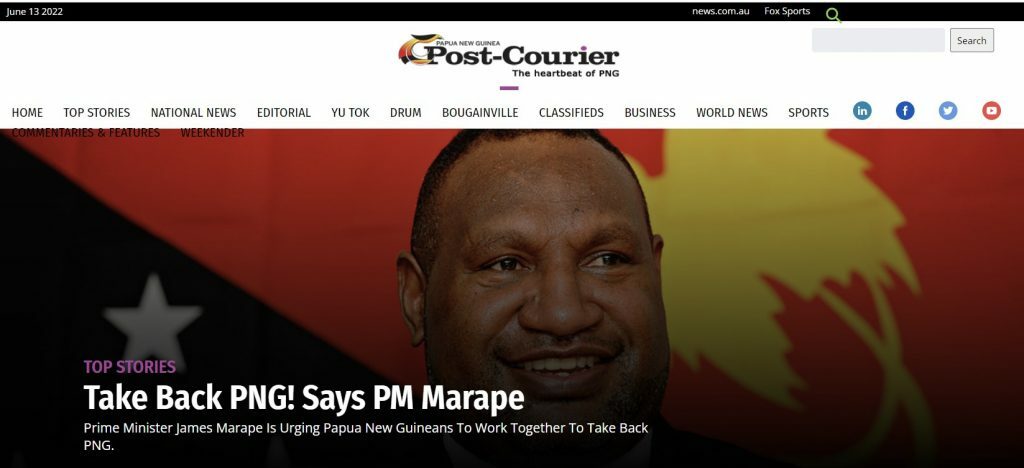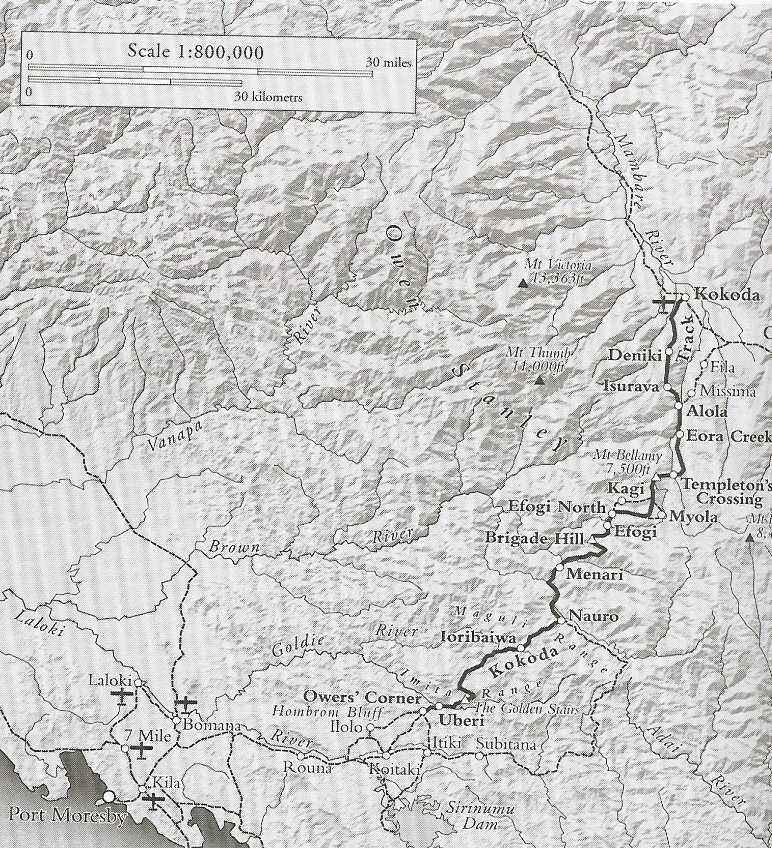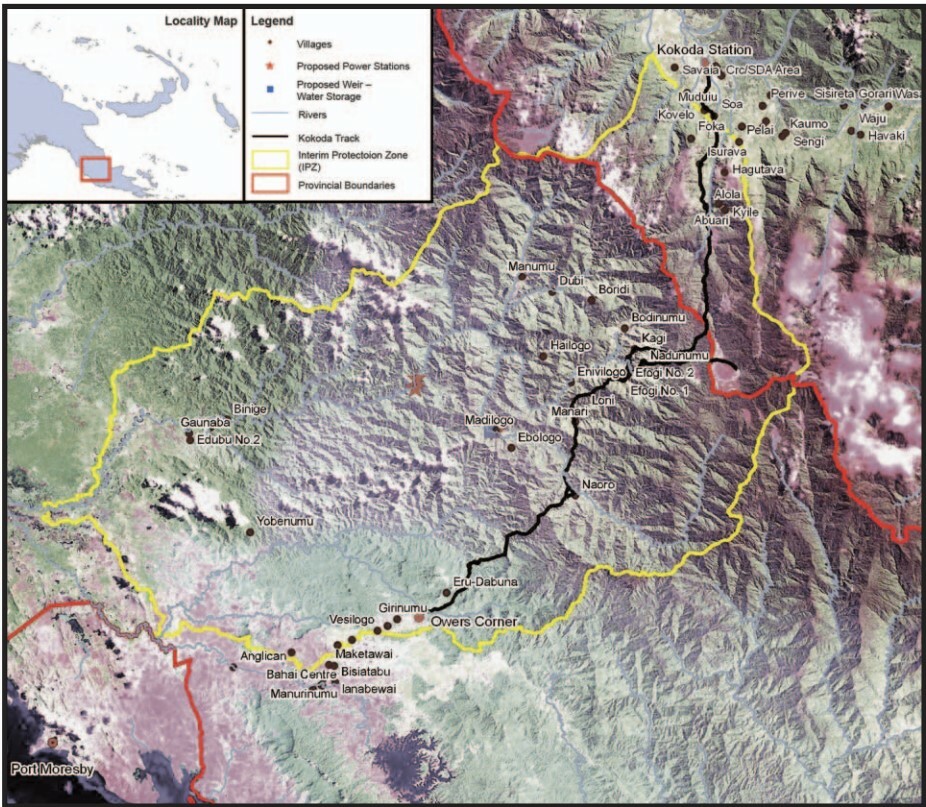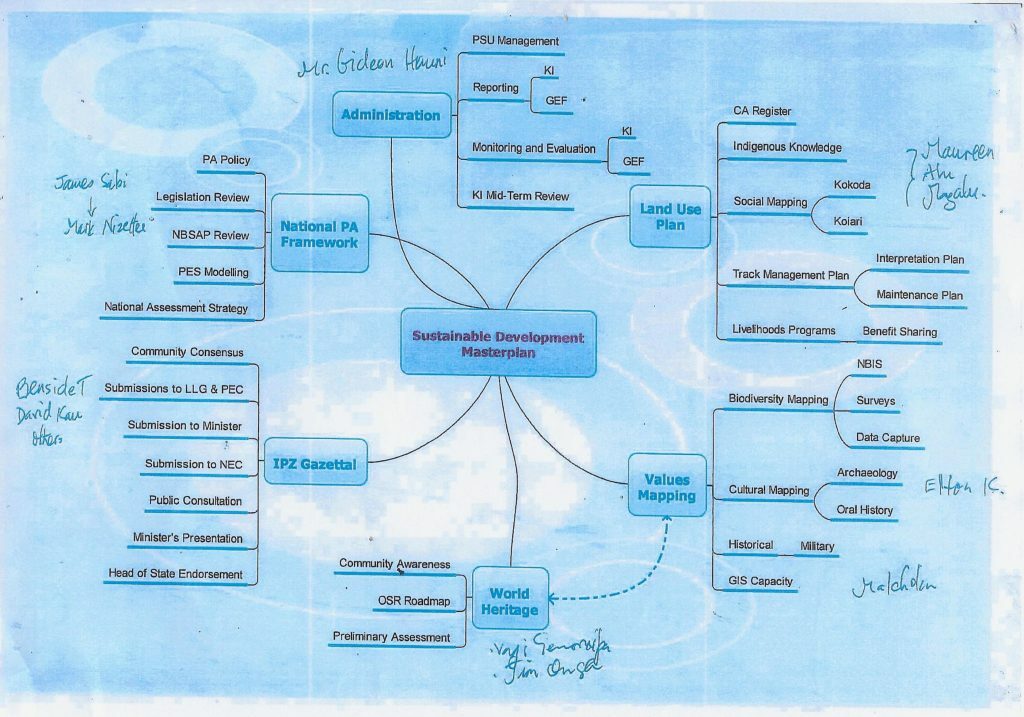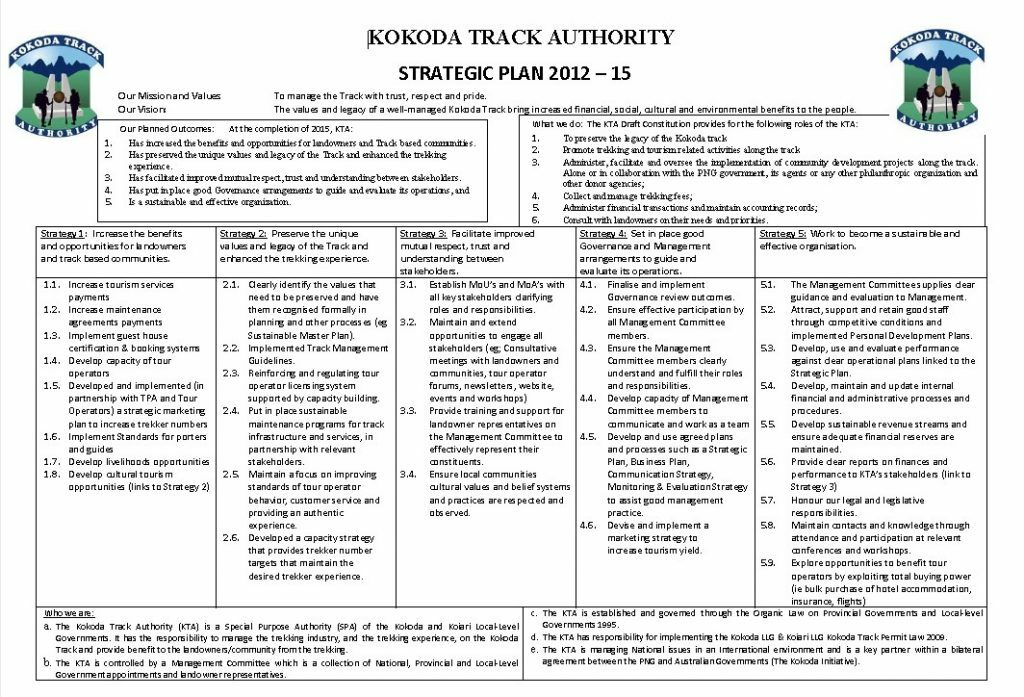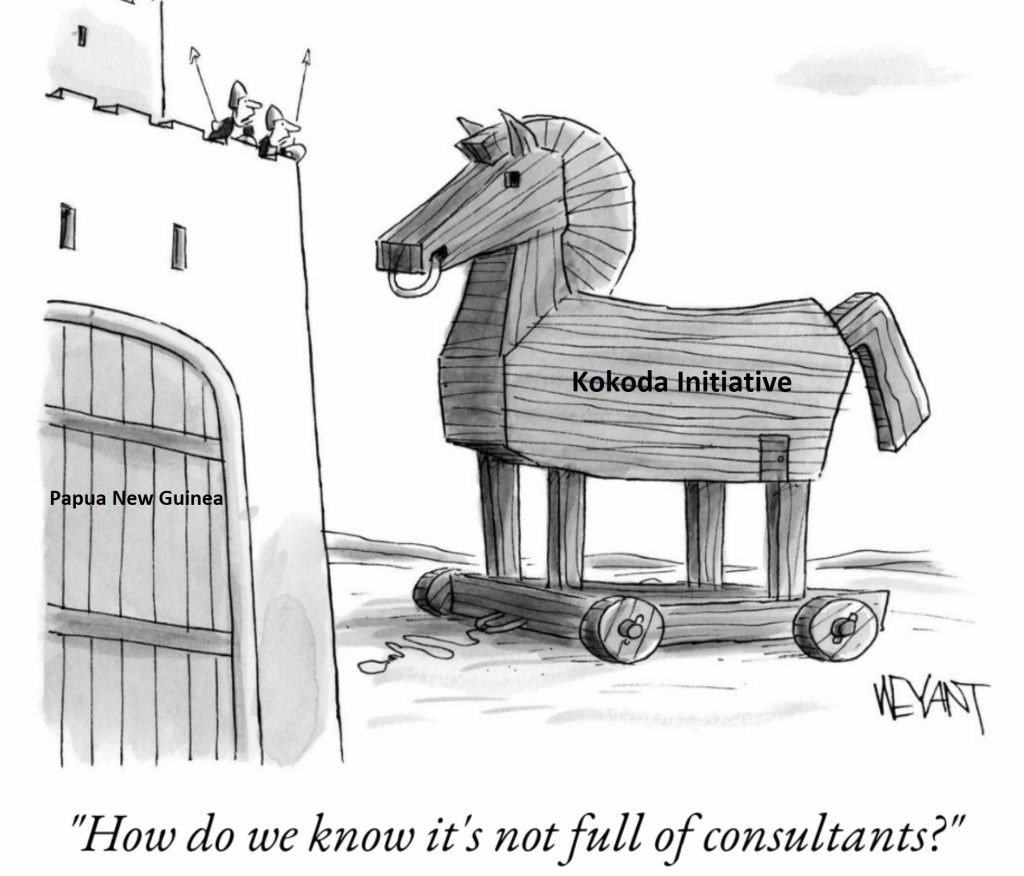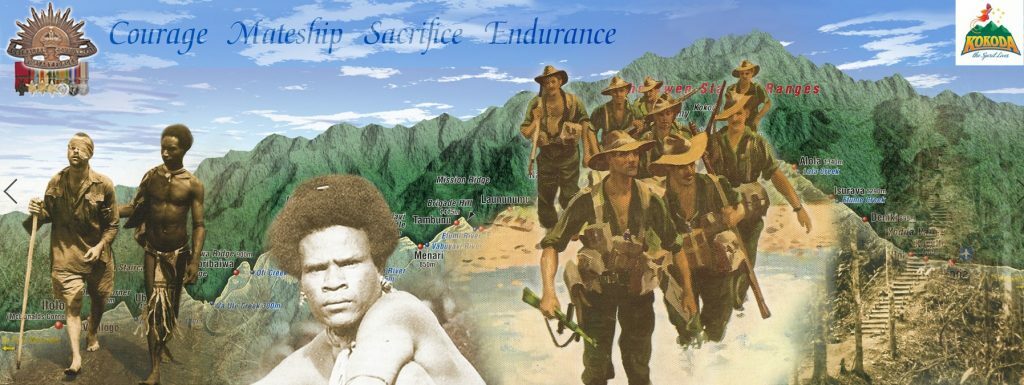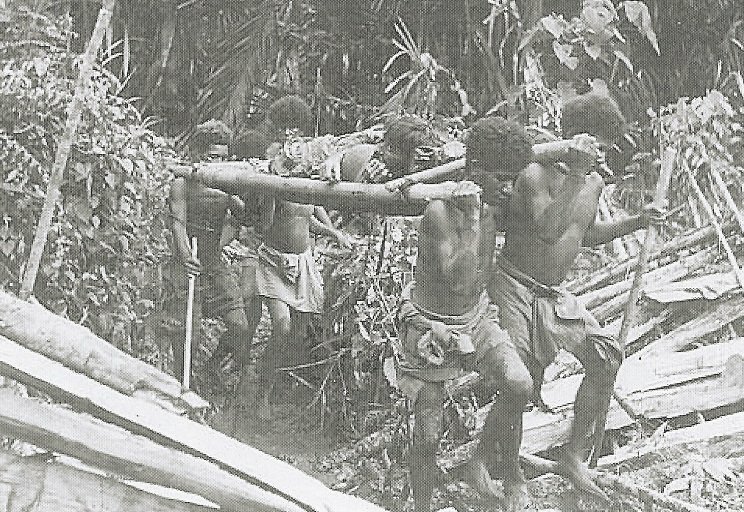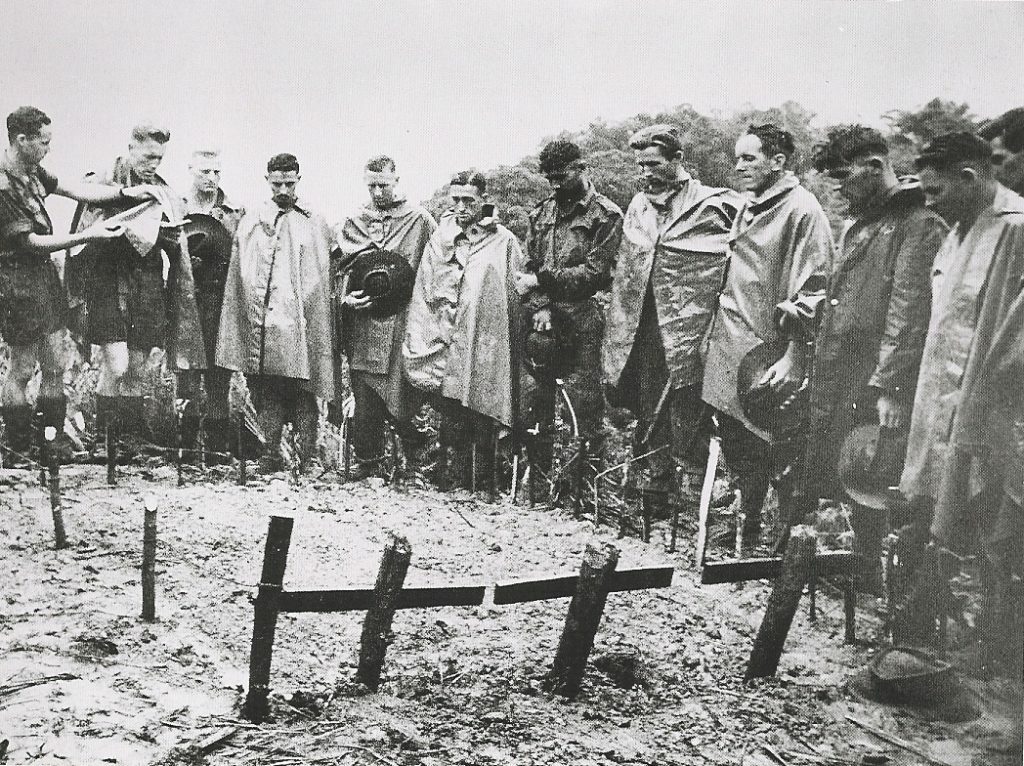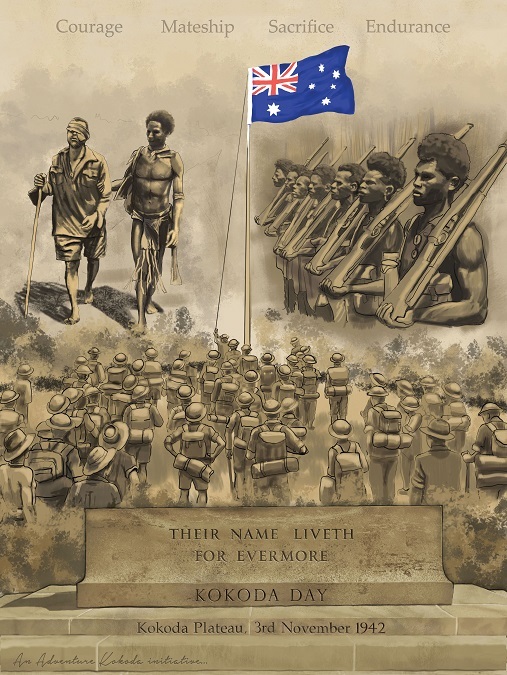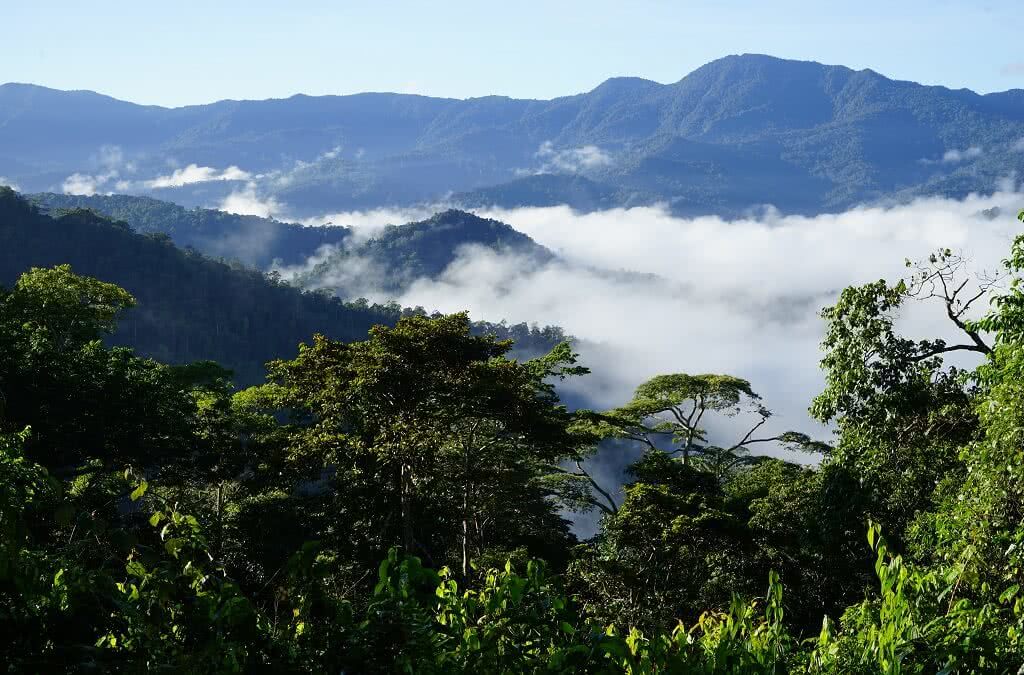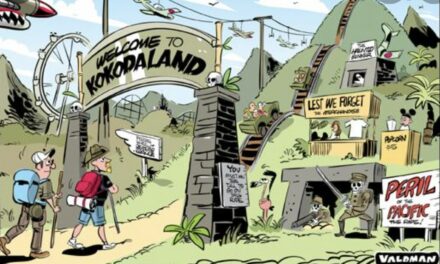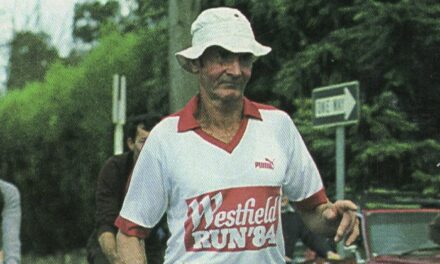A DFAT plan to introduce a new ‘Kokoda Track Management Authority’ (KTMA) has been revealed as a clandestine attempt by Australian officials to seize control of the Kokoda Trail to enhance their own aid-funded careers at the expense of local village communities and our shared wartime heritage.
Their strategy is to have the Kokoda Trail rebadged as a ‘Kokoda Corridor’ which will include Sogeri near the South Coast; the gazetted Trail between Owers Corner and Kokoda, and a large part of the Owen Stanley Ranges to the east and west of the Trail. If successful, it will provide a smorgasbord of opportunity for the next generation of aid-funded officials and consultants in the field of anthropology, archeology and the social sciences at the expense of our shared military heritage across the Kokoda Trail.
It will be managed by the Conservation Environment Protection Agency (CEPA) as part of a larger aid-funded environmental agenda to ‘protect’ these areas.
Traditional Kokoda Trail landowners will not be represented at Board level under their new plan.
None of the key stakeholders involved in PNGs most popular tourism destination, i.e., the Tourism Promotion Authority (TPA), Kokoda tour operators, or traditional resource custodians were consulted in the process of developing the bill.
Informal advice from the PNG State Solicitor’s Office indicates the drafting process of the KTMA bill is in breach of the procedures required under their Act.
Other informal legal advice suggests it could be construed as ‘foreign interference’.
I have witnessed the rise and fall of Kokoda tourism since leading my first trek across the Kokoda Trail 30 years ago.
Prior to then there was no management system in place, no trek permit fees were collected, and there were no income earning opportunities for subsistence villagers.
The rise started in 2004 when Sir Peter Barter responded to our call to establish a management authority and appointed a former Kiap, Warren Bartlett, as Chief Executive, with only a part-time assistant to run it under the auspices of the PNG Tourism Promotion Authority (TPA). We funded the new organisation, the ‘Kokoda Track (Special Purpose) Authority’ (KTA), with an advance of $10,000 until some income from Trek Permit fees was generated.
This was necessary as no financial support was available from either Government at the time. There was also considerable pushback from eco-trek operators who had arrived to cash in on the opportunity and wanted to keep their costs down by not having to pay any type of trek fee.
Over the next 5 years, under PNG management, trekker numbers increased by a whopping 423% from 1071 in 2004, to 5621 in 2008.
The decline started the following year after a group of Australian aid officials took control of the Kokoda Trail from TPA with a staff of 10 people and a multi-million-dollar budget under a ‘Joint’ Agreement to take over the management of the Trail.
Unfortunately, none of the new arrivals were familiar with the ‘Melanesian Way‘ and knew nothing about the business of pilgrimage tourism. None had trekked it with a professional operator and they didn’t do any market research with past trekkers. It was as if they already knew everything!
Since then, trekker numbers have crashed by 46% due to the dysfunctional management system they imposed. This resulted in chaos across the Trail which has led to a total loss of K49 million in foregone wages, campsite fees and local purchases for villagers.
Nothing the DFAT-Kokoda Initiative or KTA has attempted to do since then has worked regarding the management of Kokoda tourism.
A chronology of their mismanagement from 2009-2019 is outlined on this link.
Their KTA Master Plan for the period 2012-2015 contained five key strategies and 33 objectives. Not one key strategy or objective was achieved. As a result, it was quietly shelved and has never been replaced – seven years on there is still no Management Plan!
- Their million dollar ‘Village Livelihood Project’, developed without consultation with the PNG Department of Community Development, tour operators, or traditional landowners did not generate any additional income for villagers. The project was quietly shelved.
- Their campsite accreditation system never materialised – it is still not possible to even book a campsite anywhere across the Trail.
- No funds have been allocated to enhance the value of pilgrimage at significant military heritage sites, which is the primary attraction for Kokoda trekkers.
- No funds have been allocated to meet the most basic needs of trekkers – there is not a single hygienic toilet across the entire Trail.
- No systems have been introduced to protect guides and porters from exploitation. As a result, the majority are overloaded, underpaid and poorly equipped. One died under his backpack which reportedly weighed more than 40 kg.
- They turned a blind eye to illegal tour operators who have avoided paying tax on the millions they have earned in PNG.
- No financial reports have ever been published so nobody has any idea where the millions they have collected in trek permit fees has gone.
Any other organization with such a dismal record of failure would be placed under administration.
The proposed KTMA bill will result in PNG becoming the only country in the world to manage its most popular tourism destination as an environmental resource for the benefit of foreign aid-funded officials and consultants, rather than as a tourism enterprise for the economic benefit of villagers across the Trail.
The DFAT solution, to replace the KTA with a KTMA with the same people in charge, and expect a different result, is fanciful.
It is simply a bureaucratic sleight-of-hand to cover the past failures of the DFAT-Kokoda Initiative and KTA in their gross mismanagement of Kokoda tourism.
The most sensible solution to save the Kokoda Trail for pilgrimage tourism is to follow Prime Minister’s Marape’s mantra to ‘Take back PNG’ by having TPA and traditional landowners ‘Take back the Kokoda Trail‘ which has already been gazetted by the PNG Government,
The Kokoda Trail should therefore be removed from the proposed DFAT bill which should be rebadged as the ‘Owen Stanley Ranges Environmental Authority (OSREPA)’ bill to reflect its true purpose.
